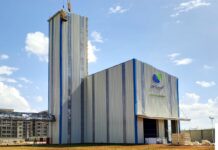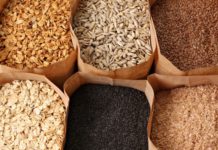This will create 100 more jobs in our community and position the company to meet the growing appetite for snack foods in Southern Africa. In addition to the South African market, PepsiCo South Africa’s chips brands are also exported to other countries.
Potato chips make up a significant part of the company’s snack production and is a very important part of the business. Currently, PepsiCo South Africa operates four potato chip production lines across three plants that are all running at high levels of capacity utilisation. Adding this new line will meaningfully increase the production capacity at Isando whilst increasing efficiency in the supply chain.
“Expanding our potato chip production capacity is an important move to meet the growing demand for South Africa’s much-loved snacks,” said Riaan Heyl, CEO of PepsiCo South Africa. “Alongside creating new jobs, this new line shows our commitment to innovation and efficiency, as we continue to deliver high-quality products to people.”
PepsiCo South Africa’s Isando plant, located in Johannesburg, is close to major potato-growing areas, and its central position eliminates the need for cross-country shipments of potato chips from the company’s Parow and Durban operations. This will deliver transport efficiencies and reduce Green House Gas emissions by eliminating 2.2 million kilometres or over 2,300 cross-country shipments annually.
PepsiCo South Africa used local suppliers in the installation of this line. Further indirect employment has been created through the continued use of local contractors, which supports the growth of South African small to medium enterprises.
“This investment aligns with our long-term strategy to innovate and grow sustainably, ensuring that we are one of the leading food and beverage companies in South Africa. We are excited about the potential for this investment to drive economic growth and job creation.”
Sustainability efforts boosted by innovative solution that will turn peels into power
In addition to supporting the expansion of the production line, PepsiCo South Africa, in collaboration with the Department of Trade Industry and Competition, invested R100m in an anaerobic digester plant at the Isando factory.
The plant transforms the organic solid waste of reject potatoes, peels, and other remnant materials generated at the site (which are inevitable by-products of the manufacturing process) into biogas, a clean and renewable source of energy, that will be used to fuel a gas-fired engine generating up to 780kW of electrical energy for use at the facility (~30% of the Isando factory’s peak electrical demand).
“These combined investments drive efficiency while championing sustainability in support of our PepsICo Positive strategy, which is not just a business strategy; it’s a transformative journey across our operations, from production to marketing to distribution,” concludes Heyl.








